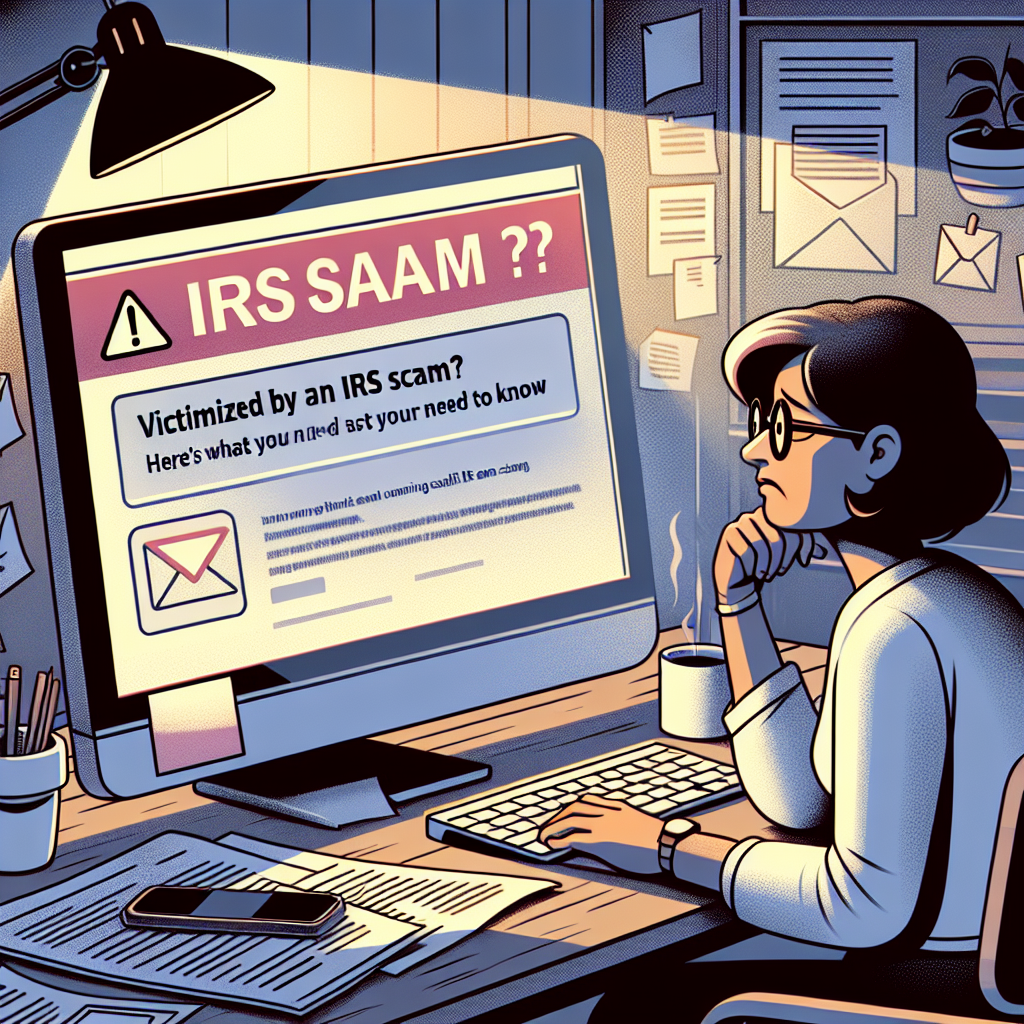Falling for an IRS scam can feel overwhelming and damaging. Millions of people become victims each year. Recognizing the signs and knowing what steps to take can be crucial.
What is an IRS Scam?
IRS scams typically involve fraudsters posing as IRS representatives. They often demand money or personal information. These scams can come through phone calls, emails, or even traditional mail.
Common Types of IRS Scams
There are several scams you should be aware of:
- Phone Call Scams: Scammers call, demanding immediate payment.
- Email Scams: Phishing emails link to fake IRS websites.
- Mail Scams: Fraudulent letters appear to come from the IRS.
- Tax Return Fraud: Fraudsters file fake returns using your identity.
Spotting an IRS Scam
Here are key signs of an IRS scam:
| Scam Type | Common Indicators |
|---|---|
| Phone Call Scam | Caller demands immediate payment, often via prepaid card or wire transfer. |
| Email Scam | Email contains links to fake IRS websites or requests personal information. |
| Mail Scam | Letter demands urgent payment and threatens consequences. |
| Identity Theft | A tax return is filed in your name without your knowledge. |
Actions to Take If Victimized
If you believe you’ve been scammed:
- Contact the IRS: Confirm if the communication was legitimate.
- Report the Scam: Use the IRS’s official reporting channels.
- File a Complaint: With the Federal Trade Commission (FTC).
- Monitor Your Credit: Ensure no fraudulent activities occur on your accounts.
Preventing Future Scams
Preventing future scams involves being vigilant:
- Use the IRS’s official website to verify any communication.
- Never share personal or financial information over the phone or email.
- Be cautious of unsolicited communication claiming to be from the IRS.
In-depth Questions and Answers
How can you tell if a call from the IRS is legitimate?
Look for Specific Details
Legitimate IRS agents will never threaten immediate arrest or demand payment via prepaid card. They will provide opportunities to question and appeal the amount owed. Always verify by calling the IRS directly if in doubt.
What should you do if you receive a suspicious email claiming to be from the IRS?
Do Not Click Links
Avoid clicking on any links within the email. Instead, forward the suspicious email to the IRS at phishing@irs.gov. Then, delete the email. Always check the IRS’s official website for additional guidance.
Can mail from the IRS be fraudulent?
Verify With Official Channels
Yes, scammers can send fraudulent letters. Always compare the letter you receive with known IRS mailing addresses and contact numbers. If unsure, call the IRS directly to verify the authenticity.
How can you safeguard your information against IRS scams?
Implement Security Measures
Use strong, unique passwords for online accounts. Enable two-factor authentication where possible. Regularly review your accounts and credit reports for any suspicious activity. Stay informed about common scam tactics.
For more tips on avoiding scams, visit Red Flag Scammers.
Staying informed and cautious can help you avoid falling victim to IRS scams. By recognizing the signs and knowing what steps to take, you can protect yourself and your personal information.

